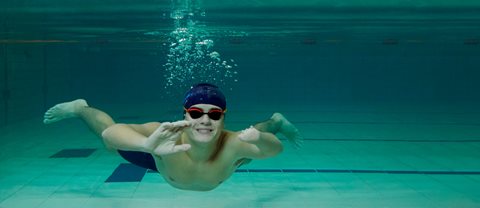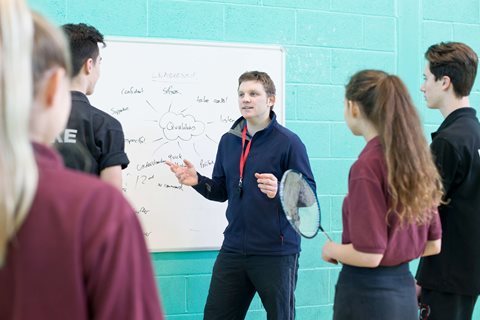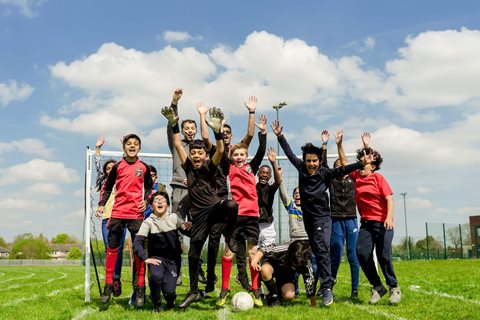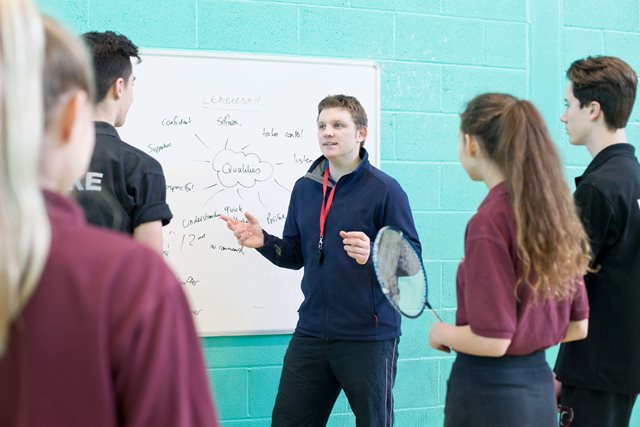Our cookies
We use essential cookies to make our website work smoothly for you. To make sure we're always improving, we'd like to use analytics to track how people use the site. We won't set non-essential cookies unless you give us permission. You can find more information about all the cookies we use in our Privacy and Cookie Policy.
Some cookies are a must for our website to function properly. If you turn off essential cookies, it may affect how you experience our site.
The non-essential cookies we use help us understand how you use our website and make improvements to enhance your experience.

What Coaches Think
Child-first coaching will look different for each coach and each sport, but the focus on voice, choice and journey as the founding principles of the Play Their Way movement will be consistent.
As a grassroots coaching movement, the Children’s Coaching Collaborative are committed to making sure the campaign development is representative of the coaching voice. During the campaign’s conception, we have undertaken focused exploratory research with coaches, as well as with children and young people to inform and inspire the movement.
The research enabled us to understand and creatively explore:
As part of this research we have captured some of the feedback in a short film. This video illustrates where coaches are today, reflecting on current beliefs and challenges and therefore the context and barriers to a child-first approach.
What the Research Told Us
The majority of coaches we spoke to expressed a real love for their role as a coach and feel rewarded by it. Many recognise their role provides much more than just sports tuition, equipping youngsters with transferrable skills that go above and beyond technical sporting prowess.
We found a range of different motivations for why they became a coach, including:
- Parenting: volunteers who have got involved with a local team which their child is part of.
- Community-led: a desire to support and contribute to a local community.
- Love of Sport: passionate/enthusiastic about sport and want to pass on a love for the game.
- A New Start: have got into coaching/sport as a new career.
- ‘A Calling’: see coaching as a career, studied sports and take personal and professional development seriously.
“Coaching is all about making a difference to kids’ lives, adding value”
Coaches told us that their ability to focus on enjoyment can be impacted by other potentially conflicting outcomes.
- The Sport: some sports require a skills base to be able to play at a level that’s enjoyable, whilst some require training on safe practice.
- The Level: has a dramatic impact on both children’s and parent’s expectations of the coach.
- Having a Goal: teams within competitive leagues naturally have different focuses, which means enjoyment isn’t always the main priority.
- Age: both the ability of children and the amount of structure in the session often varies by age and can impact the role of the coach and kids’ expectations.
- Setting: can the coach focus on the session or do they have other factors to manage such as admin/facilities/logistics, which provide distraction?
- Money: paid coaches told us they feel under pressure to ‘deliver’; showing tangible improvement or match parent expectations.
Research Recommendations
Of the coaches we spoke to, many have given their lives to sport or their community and are very motivated by positive outcomes for children and young people.
Many felt that coaching is harder work than it used to be, but that they recognise their role is to help young people in a way that goes beyond developing sporting skills.
To inspire and support coaches at scale and to boost the positive experience of children and young people our research identifies that the Children’s Coaching Collaborative must:
- Showcase best practices to demonstrate impact and leverage wider change
- Support coaches to develop their child-first coaching practices
- Deliver wider systemic awareness to facilitate change
- Provide a clear child-first intention to persuade behavioural change

The case for change
Learn more about some of the foundational insights which have fuelled the conception of the Play Their Way movement.

Understanding coaches
The CCC has commissioned research to understand more about the backgrounds, experiences and needs and wants of children’s coaches.

Ask us a question
Got questions about child-first coaching and the Play Their Way movement? We can help.
Join the movement!
Whether as parents, coaches or young people, we all have a role to play in helping create a huge cultural shift in the way we engage children in physical activity, to help them become healthier and happier and to develop them as people.

SHARE THE MOVEMENT
Help spread the word by sharing this website with fellow coaches!
